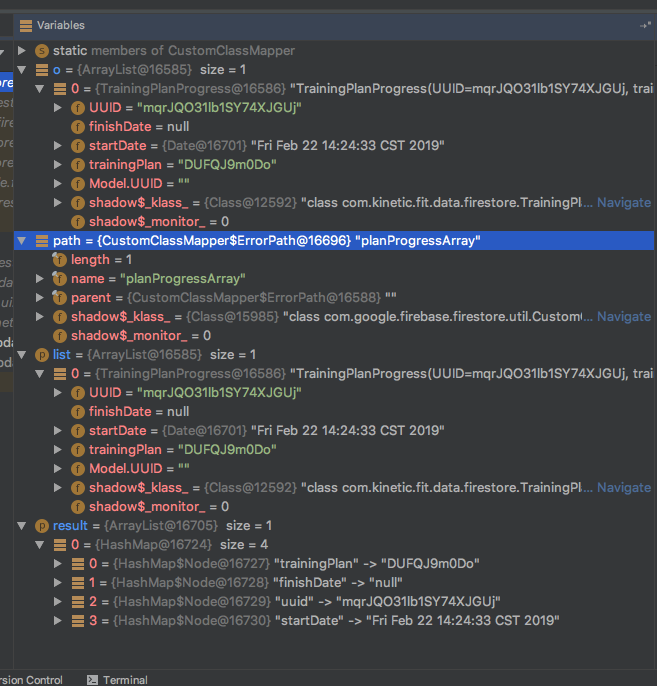Use the @PropertyName annotation to force the name to be whatever you like if our default naming rules don't work for you.
Firestore maps names as follows:
- fields: taken directly
- getters: initial
getorisis stripped and then any subsequent run of uppercase is made lowercase.
The underlying issue here is that Kotlin properties end up generating both backing fields, getters, and setters (for var) so the getter rule is being applied.
Something like this would do what you're looking for:
@get:PropertyName("UUID") override var UUID: String = ""
I have a problem with the custom class mapper. I have a Profile class that contains an array of TrainingPlanProgress objects.
When I run the set function on the document with the current profile object, the custom object mapper runs and changes the UUID field on all the array items to lowercase uuid.
Profile class:
Model class:
TrainingPlanProgress class:
I have traced this all the way through the sdk to the CustomClassMapper class to this function
At the point where the array of TrainingPlanProgress is returning results from serialization this is what the debugger shows:
you can see o and list still have UUID in the members, but the result being returned has changed it all to lowercase.
When this gets to firestore it changes the objects then the next sync of the profile loses sight of the TrainingPlanProgress items because it can't map by key to the UUID key because it is no longer all upper case.
Here is what the class decompiles to in Android Studio.
my break point was on the last case return result.
Is there a way around this that doesn't require changing all the UUID to uuid in the database?
Please let me know if you need any more information.